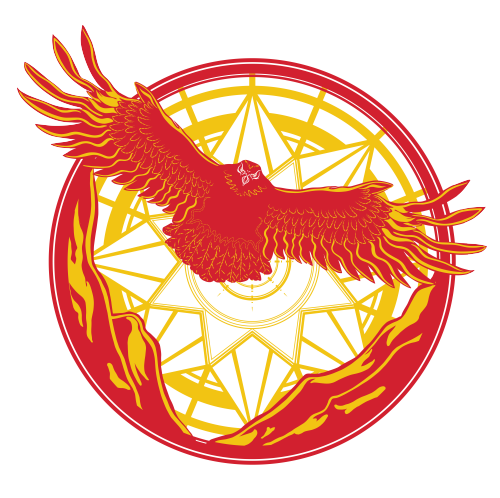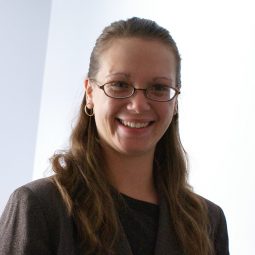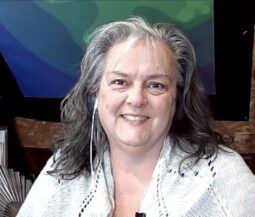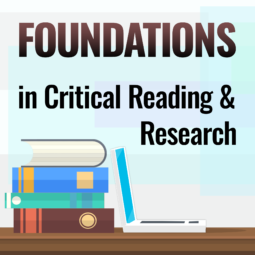INSTRUCTORS:
Note for Summer 2026: For the Summer 2026 term, we are gauging interest from Signum students (credit M.A. or graduate diploma students and discussion auditors) on several graduate courses. These courses will run “with demand,” meaning that they will only run this Summer if there is enough student interest. Any courses which do not run this Summer may be deferred to a future semester. Please fill out the course interest form no later than Sunday, March 22nd, after which time we will make a final decision.
Foundations in Critical Reading and Research introduces students to current practices and conventions of graduate scholarship in Language and Literature, core literary theories, and foundational Humanities skills. In the first part of the course, students will read essays by noted scholars and writers from the twentieth century alongside a well-known fairy tale, modern fantasy novel, and epic poem, using the set theoretical texts to consider different approaches to these pivotal works. As the course progresses and expands to include works in other genres and forms, students will learn about several different literary theories, weighing the strengths and limitations of different critical lenses against differing texts and types of texts. Along the way, students will practice reading closely (and writing about it!), crafting and developing thesis statements and analytical paragraphs, using Signum’s library resources, citing and integrating primary and secondary sources, organizing short and long work, responding to criticism, and revising their work.
Each week will include a full-length (90-minute) lecture on the primary text as well as a shorter practical lecture or pair of lectures applying critical theories and secondary readings to that set text and introducing foundational writing and research techniques. Students will have two preceptor sessions weekly. In one, students will discuss the set primary text and any new or relevant secondary and critical models; in the other, students will discuss and apply recently presented practices, techniques, or approaches in a more practical writing workshop. Roundtables and guest lectures by Signum’s experienced faculty will allow students to encounter a range of approaches to the study of language and literature throughout the course, illustrating some of the many ways in which scholarly differences benefit academic discourse and contribute to the growth of knowledge.
Note for students admitted to the Master’s Program in Language and Literature: Effective for students admitted starting Fall 2022 and after, this course is required and must be taken within the first two calendar years of the M.A. program. Students admitted before Fall 2022 are encouraged but not required to take this course.
Weekly Schedule
This course will include one 90-minute pre-recorded lecture, 1-3 shorter pre-recorded lectures or roundtables, and two hours of live discussion on Tuesdays and Thursdays from 11:00 PM to 12:00 AM (midnight) ET with Professor Alden.
Course Schedule
Week 1: Stories and Story Structures
- “Cinderella”
- Fairy Stories and the Classics
- Topic Sentences and Paragraph Structure
Week 2: Thinking, Pondering, Deducing, and Deciding: Close Reading Techniques
- The Princess Bride
- Close Reading Prose (roundtable)
- MLA Style and Bibliography
Week 3: Macro and Micro Readings
- The Princess Bride
- The Odyssey
- Close Reading Poetry
- Thesis Statements and Analytical Paragraphs (roundtable)
Week 4: Words and Meanings
- The Odyssey
- Formalist Criticism
- Avoiding Plagiarism
Week 5: Scholarly Discussions and How to Find Them
- The Odyssey
- Library Resources
- Research and Research Questions
Week 6: Some Advances in Theory and Bibliography
- The Odyssey
- New Historicist Criticism
- Advanced Citations and Bibliographies
Week 7: I’m a Scholar, not a Theorist!
- Feminist & Marxist theory
- Planning a Longer Argument (roundtable)
- Annotated Bibliographies
- Literature Reviews
Week 8: Languages of Literature
- Star Trek
- Science Fiction
- Postcolonialism and Critical Race Theory
- Citing and Analyzing Non-print Media
Week 9: The Serviceable Cogs of Scholarship
- “Leaf by Niggle”
- Ecocriticism
Week 10: Other Things to Read than Print
- Old Norse and Old English Literature
- Engaging with Secondary Sources (roundtable)
Week 11: Conceivable Changes
- The Princess Bride
- Adaptation Studies
- Effective Peer Review
- Responding to Criticism (roundtable)
Week 12: Coda
- “Cinderella”
- Children’s Literature
- Other Analytical Methods
- Concluding Remarks
Required Texts
The Amazon links are provided for convenience only, and we encourage students to purchase texts wherever they wish.
- Of Other Worlds (C. S. Lewis)
- Tree and Leaf (J.R.R. Tolkien)**
- The Odyssey, transl. Robert Fagles (this translation required)
- The Princess Bride (novel by William Goldman)
- The Princess Bride (film directed by Carl Reiner)
- Access to selected Star Trek episodes (details provided in the final syllabus)
**Students will need access to “Leaf by Niggle” and “On Fairy-Stories.” Both are contained in Tree and Leaf (linked above) or this edition of The Tolkien Reader, but students are welcome to any edition of the set texts.
Optional: The Blue Fairy Book (Andrew Lang)
Further required readings will be supplied by the instructors in the final syllabus.
Course History
This course has been offered in the following semesters.
| Semester | Preceptor(s) |
|---|---|
| Spring 2026 | Sparrow Alden |
| Summer 2025 | Dr. Faith Acker |
| Fall 2024 | Dr. Faith Acker |
| Fall 2023 | Dr. Faith Acker and Dr. Sara Brown |
| Fall 2022 | Dr. Faith Acker and Dr. Sara Brown |



